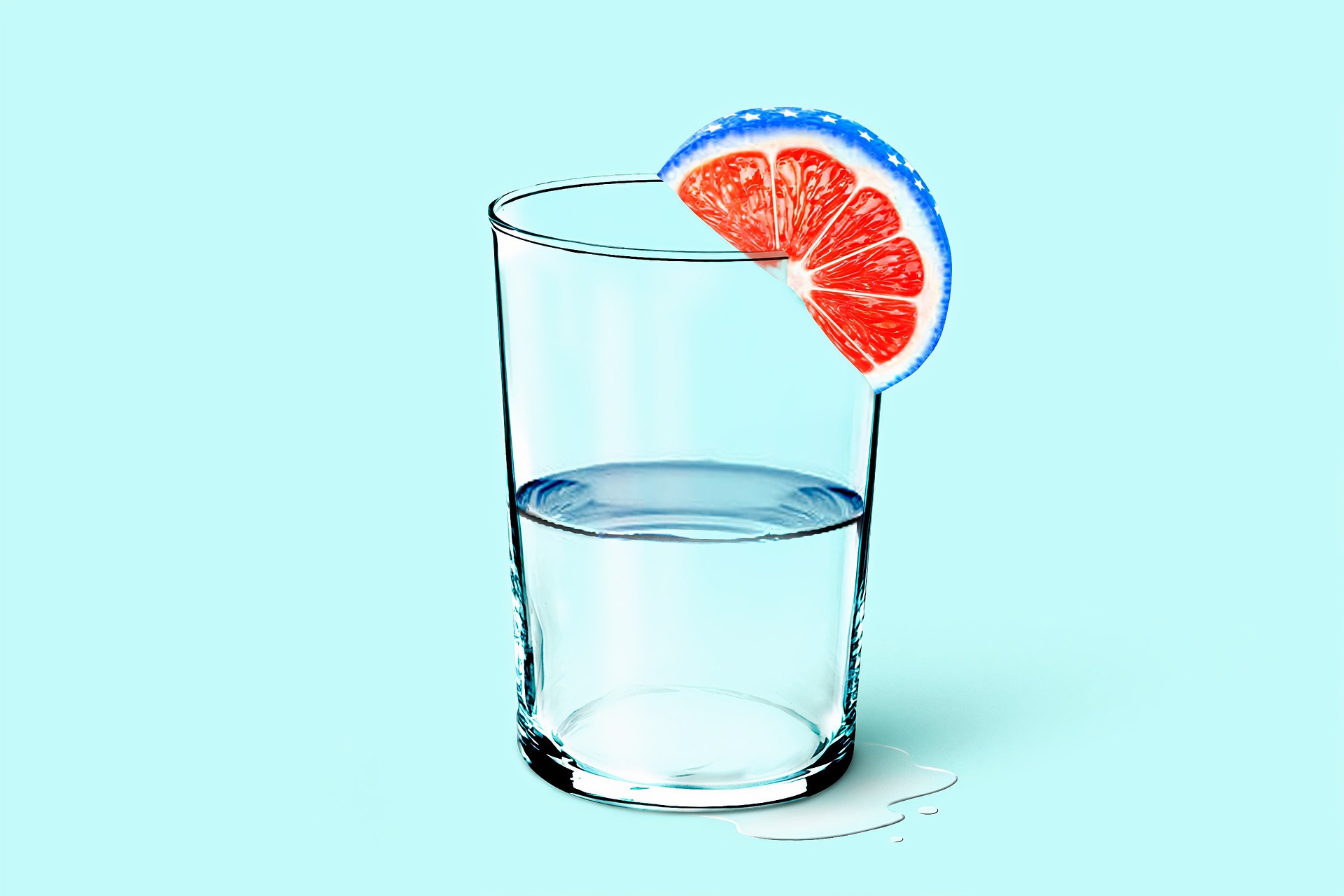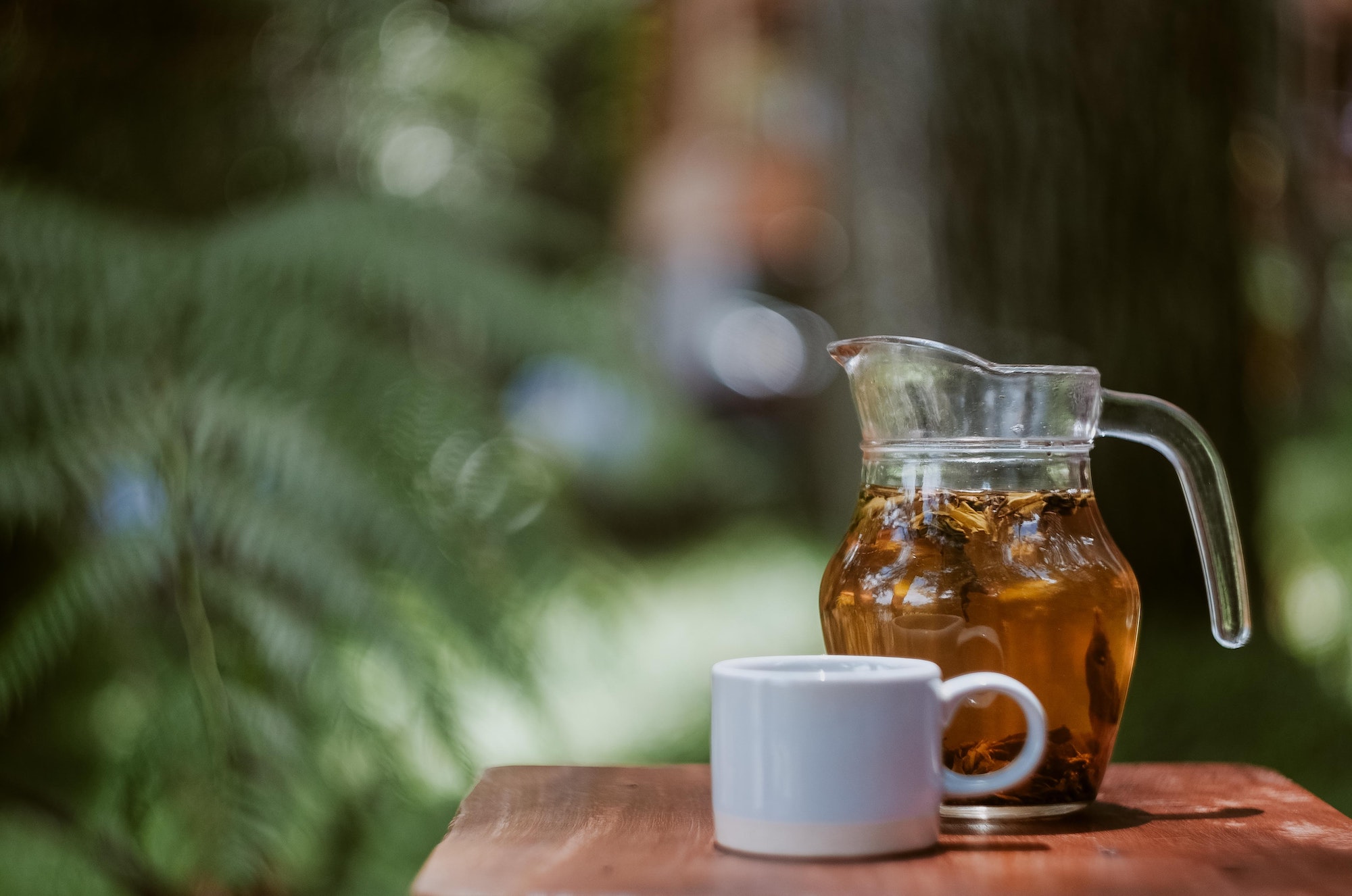Water is essential for maintaining good health, yet many people struggle to drink enough of it daily. Whether due to busy lifestyles, lack of habit, or simply forgetting, insufficient water intake can lead to dehydration and a range of health issues. This comprehensive guide explores various strategies, tips, and techniques to help you drink more water and stay hydrated.
Understanding the Importance of Water
Why is Water Essential?
Water makes up about 60% of the human body and is crucial for many bodily functions, including:
- Temperature Regulation: Helps maintain body temperature through sweating and respiration.
- Nutrient Transport: Facilitates the transport of nutrients and oxygen to cells.
- Digestion: Aids in the digestion process and prevents constipation.
- Joint Lubrication: Keeps joints lubricated and functioning properly.
- Detoxification: Helps flush out toxins and waste products through urine and sweat.
Symptoms of Dehydration
Dehydration can occur when you lose more water than you take in. Symptoms include:
- Thirst: The body’s primary signal that it needs more water.
- Dry Mouth: A lack of saliva can cause a dry or sticky feeling in the mouth.
- Fatigue: Dehydration can lead to feelings of tiredness and lethargy.
- Dark Urine: Indicates concentrated urine due to insufficient water intake.
- Dizziness: A lack of water can affect blood pressure and circulation, leading to dizziness.
- Headaches: Dehydration can cause headaches and migraines.
How Much Water Do You Need?
General Guidelines
The amount of water you need can vary based on several factors, including age, gender, activity level, and climate. General guidelines suggest:
- Men: Approximately 3.7 liters (about 13 cups) per day.
- Women: Approximately 2.7 liters (about 9 cups) per day.
Factors Influencing Water Needs
- Activity Level: More active individuals need more water to compensate for fluid lost through sweat.
- Climate: Hot and humid climates increase the need for water due to higher rates of perspiration.
- Health Conditions: Certain conditions, such as fever, diarrhea, or vomiting, increase water needs.
- Pregnancy and Breastfeeding: Women who are pregnant or breastfeeding require additional water.
Strategies to Drink More Water
Set Daily Goals
Setting a daily water intake goal can help you stay on track. Use a water intake calculator to determine your specific needs and aim to meet that target each day.
Use a Reusable Water Bottle
Carrying a reusable water bottle makes it easier to drink water throughout the day. Choose a bottle that suits your lifestyle, whether it’s a large bottle for extended outings or a smaller, portable one for daily use.
Establish a Routine
Incorporate water drinking into your daily routine. Drink a glass of water:
- Upon Waking: Start your day with a glass of water to rehydrate after a night’s sleep.
- Before Meals: Drinking water before meals can help with digestion and prevent overeating.
- Before Bed: Have a glass of water before bed, but not too much to avoid nighttime trips to the bathroom.
Track Your Intake
Use a water tracking app or journal to monitor your daily intake. This can help you stay accountable and ensure you’re meeting your hydration goals.
Flavor Your Water
If plain water is unappealing, try adding natural flavors. Some ideas include:
- Lemon or Lime: Adds a refreshing citrus flavor.
- Mint Leaves: Provides a cool, fresh taste.
- Cucumber Slices: Adds a subtle, crisp flavor.
- Berries: Infuses water with a hint of sweetness.
Eat Water-Rich Foods
Incorporate water-rich foods into your diet to boost hydration. Some examples include:
- Fruits: Watermelon, strawberries, oranges, and grapes.
- Vegetables: Cucumbers, lettuce, celery, and zucchini.
Set Reminders
Set reminders on your phone or use a water reminder app to prompt you to drink water at regular intervals throughout the day.
Make it a Habit
Consistently practice these strategies until drinking water becomes a habit. It takes time to develop new habits, so be patient and persistent.
Tips for Staying Hydrated
Drink Water with Meals
Drinking water with your meals can help you stay hydrated and improve digestion. Keep a glass of water at the table and take sips throughout your meal.
Replace Other Beverages with Water
Cut back on sugary drinks, sodas, and caffeinated beverages, and replace them with water. This can improve your hydration and overall health.
Use a Straw
Drinking through a straw can make it easier and more enjoyable to drink water, leading to increased intake.
Keep Water Accessible
Keep water readily accessible at home, work, and in the car. Having water within reach makes it more likely that you’ll drink it regularly.
Stay Hydrated During Exercise
Ensure you drink enough water before, during, and after exercise. Consider sports drinks for intense workouts to replace lost electrolytes, but be mindful of added sugars.
Monitor Your Urine
Check the color of your urine to gauge your hydration level. Clear or light-colored urine typically indicates good hydration, while dark urine suggests you need more water.
Stay Hydrated in Different Climates
- Hot Climates: Drink more water to compensate for increased sweating.
- Cold Climates: Stay hydrated even in cold weather, as the body still loses water through respiration and perspiration.
Benefits of Drinking More Water
Improved Physical Performance
Staying hydrated is essential for maintaining physical performance, especially during exercise. Dehydration can lead to fatigue, reduced endurance, and impaired strength.
Better Cognitive Function
Hydration plays a crucial role in cognitive function. Adequate water intake can improve concentration, memory, and overall mental performance.
Enhanced Mood
Drinking enough water can positively affect your mood. Dehydration can lead to irritability, anxiety, and depression.
Weight Management
Water can aid in weight management by promoting satiety and reducing calorie intake. Drinking water before meals can help you eat less.
Healthy Skin
Proper hydration keeps your skin moisturized and can improve its appearance. Drinking water can help reduce dryness, flakiness, and signs of aging.
Digestive Health
Water aids in digestion by helping break down food and preventing constipation. Staying hydrated can promote regular bowel movements.
Kidney Function
Adequate water intake supports kidney function by helping to flush out toxins and waste products from the body.
Overcoming Barriers to Drinking More Water
Forgetfulness
Set alarms or use apps to remind you to drink water at regular intervals. Keeping a water bottle with you at all times can also help you remember.
Dislike of Plain Water
Experiment with adding natural flavors to your water, such as fruit, herbs, or a splash of juice, to make it more appealing.
Busy Lifestyle
Incorporate water breaks into your routine, such as drinking a glass of water during work breaks or while commuting. Use a large water bottle to minimize refills.
Lack of Thirst
Even if you don’t feel thirsty, it’s important to drink water regularly. Establish a routine and make a conscious effort to drink water throughout the day.
Special Considerations
Pregnancy and Breastfeeding
Pregnant and breastfeeding women need additional water to support their health and their baby‘s development. Consult with a healthcare provider to determine your specific needs.
Older Adults
As we age, our sense of thirst may diminish. Older adults should be mindful of their water intake and make a conscious effort to stay hydrated.
Children
Encourage children to drink water regularly, especially during physical activities. Make water fun by using colorful cups or adding fruit slices.
Medical Conditions
Certain medical conditions, such as kidney disease, diabetes, and heart conditions, may affect water needs. Consult with a healthcare provider for personalized recommendations.
Creative Ways to Increase Water Intake
Infused Water
Create your own flavored water by infusing it with fruits, vegetables, and herbs. Some popular combinations include:
- Lemon and Mint: Refreshing and cooling.
- Cucumber and Lime: Light and crisp.
- Strawberry and Basil: Sweet and aromatic.
- Orange and Blueberry: Vibrant and fruity.
Water-Rich Recipes
Incorporate water-rich recipes into your diet, such as soups, smoothies, and salads. These dishes not only provide hydration but also offer essential nutrients.
Herbal Teas
Herbal teas are a great way to increase water intake while enjoying different flavors. Opt for caffeine-free varieties to avoid dehydration.
Ice Cubes
Add fruit-filled ice cubes to your water for a burst of flavor and visual appeal. Simply freeze pieces of fruit, herbs, or even edible flowers in ice cube trays.
Water Drinking Challenges
Join or create water drinking challenges with friends, family, or coworkers. These challenges can motivate you to drink more water and make it a fun, social activity.
Hydration Tips for Different Activities
At Work
- Desk Water Bottle: Keep a water bottle on your desk and take sips throughout the day.
- Water Breaks: Take regular water breaks, especially if you have a sedentary job.
- Meetings: Bring water to meetings to stay hydrated while you work.
During Exercise
- Pre-Hydration: Drink water before you start exercising to ensure you’re hydrated.
- Hydrate During Exercise: Drink small amounts of water regularly during your workout.
- Post-Exercise Hydration: Replenish lost fluids after exercising.
Traveling
- Portable Water Bottle: Carry a portable water bottle when traveling to ensure you have access to water.
- Hotel Stays: Drink water upon arrival at your hotel to combat travel-related dehydration.
- Flights: Drink water regularly during flights to counteract the dehydrating effects of cabin air.
The Role of Technology in Hydration
Water Tracking Apps
Use water tracking apps to monitor your intake, set goals, and receive reminders. Popular apps include:
- MyFitnessPal: Tracks water intake along with other dietary and fitness metrics.
- Hydro Coach: Provides personalized hydration goals and reminders.
- WaterMinder: Tracks water consumption and reminds you to drink regularly.
Smart Water Bottles
Smart water bottles can track your water intake and remind you to drink through built-in sensors and connected apps. Some popular options include:
- HidrateSpark: Tracks your water intake and syncs with a mobile app.
- Thermos Connected Hydration Bottle: Measures and monitors your water consumption.
The Environmental Impact of Hydration Choices
Reusable Water Bottles
Using reusable water bottles helps reduce plastic waste and is more environmentally friendly. Choose bottles made from sustainable materials such as stainless steel, glass, or BPA-free plastic.
Filtered Water
Invest in a water filter to reduce the need for bottled water. Filters can remove impurities and improve the taste of tap water, making it more appealing to drink.
Reducing Plastic Waste
Be mindful of your plastic usage and opt for sustainable hydration options. Avoid single-use plastic bottles and recycle when possible.
Staying Hydrated in Different Climates
Hot Climates
- Increase Intake: Drink more water to compensate for increased sweating.
- Electrolytes: Consider electrolyte drinks to replace lost salts and minerals.
- Shade and Cool Areas: Stay in shaded or air-conditioned areas to reduce fluid loss.
Cold Climates
- Regular Intake: Continue to drink water regularly, even if you don’t feel thirsty.
- Warm Beverages: Drink warm water, herbal teas, or broths to stay hydrated and warm.
- Layer Up: Dress in layers to maintain body temperature and reduce fluid loss through respiration.
Hydration and Exercise Performance
Pre-Exercise Hydration
Drink water before starting your workout to ensure you’re properly hydrated. Aim for 500-600 ml (17-20 oz) about 2-3 hours before exercise.
During Exercise Hydration
Drink small amounts of water regularly during your workout. For prolonged or intense exercise, consider sports drinks to replenish electrolytes.
Post-Exercise Hydration
Replenish lost fluids after exercising by drinking water or an electrolyte beverage. Aim to drink 1.5 liters (50 oz) for every kilogram (2.2 lbs) of body weight lost during exercise.
Hydration and Weight Management
Water and Satiety
Drinking water before meals can promote feelings of fullness, helping you eat less and manage your weight.
Replacing High-Calorie Beverages
Replacing sugary drinks and sodas with water can reduce calorie intake and support weight loss efforts.
Boosting Metabolism
Staying hydrated can help maintain a healthy metabolism, aiding in weight management.
The Connection Between Hydration and Mental Health
Cognitive Function
Proper hydration supports cognitive function, including concentration, memory, and alertness. Dehydration can impair mental performance and lead to brain fog.
Mood Regulation
Staying hydrated can positively affect your mood. Dehydration has been linked to increased irritability, anxiety, and depression.
Stress Reduction
Drinking water can help reduce stress levels by supporting the body’s physiological functions and maintaining balance.
Hydration and Skin Health
Moisturization
Adequate water intake helps keep your skin moisturized and prevents dryness. Hydrated skin appears more supple and healthy.
Reducing Wrinkles
Hydration can help maintain skin elasticity and reduce the appearance of fine lines and wrinkles.
Clearing Toxins
Drinking water aids in flushing out toxins, which can contribute to clearer, healthier skin.
Hydration and Digestive Health
Aiding Digestion
Water is essential for the digestion process, helping break down food and absorb nutrients.
Preventing Constipation
Staying hydrated can prevent constipation by keeping the digestive system functioning smoothly and promoting regular bowel movements.
Supporting Gut Health
Proper hydration supports overall gut health and can help maintain a balanced microbiome.
Hydration and Kidney Function
Flushing Toxins
Adequate water intake helps flush out toxins and waste products from the kidneys, reducing the risk of kidney stones and urinary tract infections.
Supporting Filtration
Water supports the kidneys’ filtration process, ensuring they function efficiently.
Preventing Kidney Stones
Staying hydrated can dilute the substances that form kidney stones, reducing the risk of stone formation.
The Role of Electrolytes in Hydration
Importance of Electrolytes
Electrolytes, such as sodium, potassium, and magnesium, are essential for maintaining fluid balance and supporting various bodily functions.
Sources of Electrolytes
Electrolytes can be obtained from foods and beverages. Common sources include:
- Fruits and Vegetables: Bananas, oranges, spinach, and sweet potatoes.
- Dairy Products: Milk, yogurt, and cheese.
- Nuts and Seeds: Almonds, pumpkin seeds, and sunflower seeds.
Electrolyte Drinks
For intense exercise or hot climates, consider electrolyte drinks to replenish lost minerals. Be mindful of added sugars and opt for low-sugar options when possible.
Hydration for Specific Populations
Children
Encourage children to drink water regularly, especially during physical activities. Make water fun by using colorful cups or adding fruit slices.
Pregnant and Breastfeeding Women
Pregnant and breastfeeding women need additional water to support their health and their baby‘s development. Consult with a healthcare provider to determine specific needs.
Older Adults
Older adults may have a diminished sense of thirst and should be mindful of their water intake. Encourage regular drinking and monitor hydration status.
Athletes
Athletes need to maintain proper hydration to support performance and recovery. Follow hydration guidelines specific to the type and intensity of the sport.
The Impact of Hydration on Overall Health
Immune System Support
Proper hydration supports the immune system by ensuring optimal function of all bodily systems and aiding in the elimination of toxins.
Cardiovascular Health
Staying hydrated helps maintain blood volume and pressure, supporting cardiovascular health and reducing the risk of heart-related issues.
Energy Levels
Adequate hydration can improve energy levels and reduce feelings of fatigue. Dehydration can lead to reduced endurance and physical performance.
Developing a Personalized Hydration Plan
Assessing Your Needs
Consider factors such as age, weight, activity level, climate, and health conditions to determine your specific hydration needs.
Setting Goals
Set daily water intake goals based on your assessment. Use water tracking apps or journals to monitor your progress.
Adjusting for Activity Levels
Increase your water intake on days with higher physical activity or exposure to hot climates. Adjust your hydration plan as needed.
The Social Aspect of Hydration
Hydration Challenges
Join or create hydration challenges with friends, family, or coworkers. These challenges can motivate you to drink more water and make it a fun, social activity.
Group Activities
Incorporate water breaks into group activities, such as exercise classes or team meetings, to promote hydration collectively.
Sharing Tips and Strategies
Share your favorite hydration tips and strategies with others. Encouraging a culture of hydration can benefit everyone.
Maintaining Long-Term Hydration Habits
Consistency is Key
Developing long-term hydration habits requires consistency. Incorporate the strategies that work best for you into your daily routine.
Reflect and Adjust
Regularly reflect on your hydration habits and make adjustments as needed. Stay flexible and adapt to changes in your lifestyle or environment.
Celebrate Progress
Celebrate your progress and milestones in your hydration journey. Recognizing your achievements can motivate you to maintain healthy hydration habits.
What are some easy ways to increase daily water intake?
You can increase your daily water intake by carrying a reusable water bottle, setting reminders to drink water, flavoring your water with fruits or herbs, and eating water-rich foods like fruits and vegetables.
How much water should I drink daily?
General guidelines suggest that men should drink about 3.7 liters (13 cups) per day, while women should aim for about 2.7 liters (9 cups) per day. Individual needs can vary based on factors like activity level, climate, and health conditions.
What are the benefits of drinking more water?
Drinking more water can improve physical performance, enhance cognitive function, boost mood, aid in weight management, improve skin health, support digestion, and maintain proper kidney function.
How can I remember to drink water throughout the day?
Set alarms or reminders on your phone, use a water tracking app, keep a water bottle with you at all times, and incorporate drinking water into your daily routines, such as drinking a glass before each meal.
What are some tips for making water more enjoyable to drink?
You can make water more enjoyable by adding natural flavors like lemon, lime, cucumber, mint, or berries. Drinking herbal teas or using fruit-infused water bottles can also add variety.
How does drinking water before meals help with weight management?
Drinking water before meals can promote feelings of fullness, which may help you eat less and reduce overall calorie intake, aiding in weight management.
Can drinking water improve skin health?
Yes, staying hydrated can keep your skin moisturized, reduce dryness, and improve its overall appearance. Hydrated skin tends to look more supple and youthful.
How does dehydration affect cognitive function?
Dehydration can impair cognitive function, leading to difficulties with concentration, memory, and alertness. Proper hydration supports optimal brain performance.
What are some water-rich foods that can help with hydration?
Water-rich foods include fruits like watermelon, strawberries, and oranges, and vegetables like cucumbers, lettuce, and celery. These foods contribute to your overall water intake.
How can I stay hydrated during exercise?
Drink water before, during, and after exercise. For prolonged or intense workouts, consider electrolyte drinks to replenish lost salts and minerals. Aim to drink small amounts of water regularly throughout your workout.
How does hydration impact energy levels?
Proper hydration can improve energy levels and reduce feelings of fatigue. Dehydration can lead to decreased endurance and overall physical performance.
Are there any tools or apps that can help track water intake?
Yes, there are several apps available that can help you track your water intake, set goals, and receive reminders. Popular options include MyFitnessPal, Hydro Coach, and WaterMinder.
How does staying hydrated support kidney function?
Adequate water intake helps flush out toxins and waste products from the kidneys, reducing the risk of kidney stones and urinary tract infections, and supporting overall kidney health.
How can drinking more water improve digestion?
Water aids in the digestion process by helping break down food and absorb nutrients. It also helps prevent constipation by keeping the digestive system functioning smoothly.
What are the symptoms of dehydration?
Symptoms of dehydration include thirst, dry mouth, fatigue, dark urine, dizziness, and headaches. Severe dehydration can lead to more serious health issues.
How can I make sure I drink enough water while traveling?
Carry a portable water bottle, drink water regularly during flights, and hydrate upon arrival at your destination. Staying mindful of your water intake can help you maintain hydration while traveling.
Can flavored water be as beneficial as plain water?
Yes, as long as the flavored water is free of added sugars and artificial ingredients, it can be just as beneficial. Adding natural flavors like fruits, herbs, or cucumber can make water more enjoyable without compromising its benefits.
What role do electrolytes play in hydration?
Electrolytes, such as sodium, potassium, and magnesium, help maintain fluid balance and support various bodily functions. They are essential for proper hydration, especially during intense physical activity or hot climates.
How can I encourage children to drink more water?
Make water fun by using colorful cups, adding fruit slices, or offering water-rich snacks. Encourage regular water breaks during playtime and physical activities.
Why is it important for older adults to stay hydrated?
As we age, our sense of thirst may diminish, making it important for older adults to consciously monitor their water intake to prevent dehydration and support overall health.
How can drinking water help reduce stress?
Staying hydrated supports the body’s physiological functions and helps maintain balance, which can reduce stress levels. Dehydration can exacerbate stress and anxiety.
How can I make drinking water a habit?
Consistently incorporate water into your daily routines, set reminders, track your intake, and use strategies like flavoring your water or using a reusable bottle to make it more appealing. Over time, drinking water will become a natural part of your day.
What are the environmental benefits of using a reusable water bottle?
Using a reusable water bottle reduces plastic waste, conserves resources, and is more environmentally friendly compared to single-use plastic bottles. Choose sustainable materials like stainless steel or BPA-free plastic.
How can I stay hydrated in cold climates?
Even in cold weather, it’s important to drink water regularly. Opt for warm beverages like herbal teas or broths, and dress in layers to maintain body temperature and reduce fluid loss through respiration.
Can drinking more water boost metabolism?
Staying hydrated helps maintain a healthy metabolism by supporting various bodily functions. Drinking water can also aid in weight management and overall energy levels.
Conclusion
Drinking more water is essential for maintaining good health and overall well-being. By understanding the importance of hydration, setting goals, and incorporating practical strategies into your daily routine, you can ensure you stay properly hydrated.
Whether it’s through tracking your intake, using reusable water bottles, or finding creative ways to flavor your water, staying hydrated can become a seamless part of your lifestyle. Remember, consistency and persistence are key to developing and maintaining healthy hydration habits.



